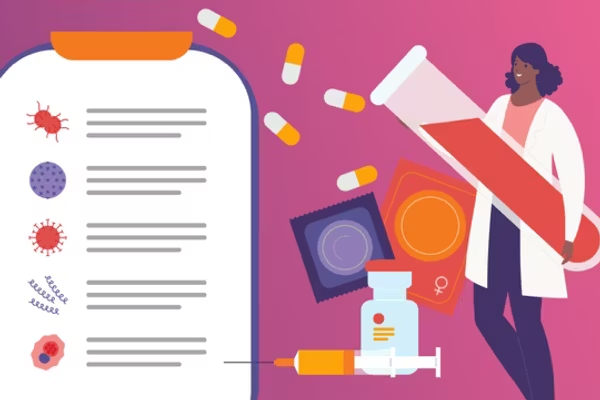Q:
I am a healthy, young 59-year-old. I had a partial hysterectomy at 42. I had a great change in my libido at the start of menopause at about age 51. I was put on an estrogen and testosterone combination and it helped at least 60 percent of the time. When my doctor took me off of it due to all the new medical information, I was back with my problem again. He gave me a testosterone gel to use every day, but I cannot tell much difference. My husband is very supportive and we still manage to have a very good sex life, but not anything like before. What do I do?
A:
I can imagine how frustrating this must be for you. You may wish to revisit the issue of hormone therapy with your health care provider. Although many women immediately stopped taking hormone therapy shortly after the findings from the Women's Health Initiative (WHI) were released in the summer of 2002, the pendulum has swung back to a more moderate place.
Let's review the realities of the WHI findings. The first results came from a large study on a combined hormone therapy called Prempro, which contained .625 mg (milligrams) conjugated estrogens plus 2.5 mg medroxyprogesterone acetate (a form of progestin). Researchers reported that if 10,000 women took the hormone combination for one year, compared to 10,000 women who took a placebo, eight more women on the drug would develop invasive breast cancer, seven more would have a heart attack or other coronary event, eight more would have a stroke and eight more would have blood clots in a lung.
Eight months later, investigators released results of a study on an estrogen-only hormone therapy (Premarin). It showed participants had a slightly increased risk of stroke.
Since you had a partial hysterectomy, and no longer have a uterus, you may only need supplementation with a low dose of estrogen, rather than an estrogen plus a progestin.
In addition, a popular combination estrogen/testosterone product comes in two formations, one with a relatively low amount of estrogen. It also contains a different formulation of estrogen than the one used in the Premarin study.
The key in determining whether a hormone therapy product is right for you is by evaluating your own individual risk factors with your health care provider and making a decision based on that information — not on a study that involved women who are likely very different from you. In fact, the average age of the women in the WHI study was 63, and the women started taking hormone therapy 10 to 15 years later than most women do, a delay that could have affected the outcome, experts note.
In fact, many women who initially discontinued hormone therapy have returned to it. Even half of female ob-gyns surveyed by the American College of Obstetrics and Gynecologists (ACOG) in December 2003 said they used hormone therapy to treat their own menopausal symptoms.
Another option for you might be changing your dose of testosterone gel and/or working with a sexologist, exploring behavioral libido-enhancing exercises.
So talk to your health care provider. Tell her or him what you told us, and work through your options very carefully to find the one that's right for you.







